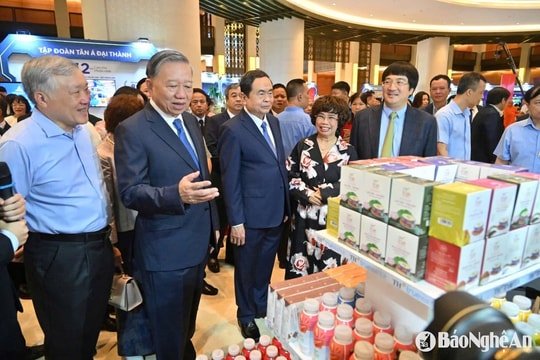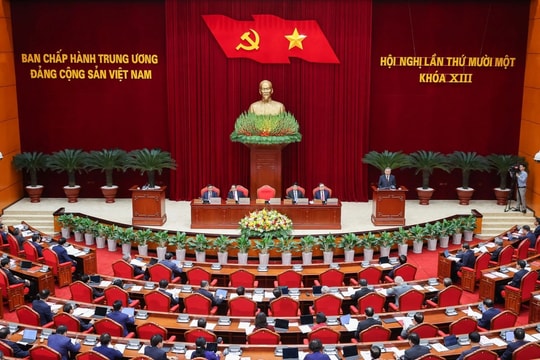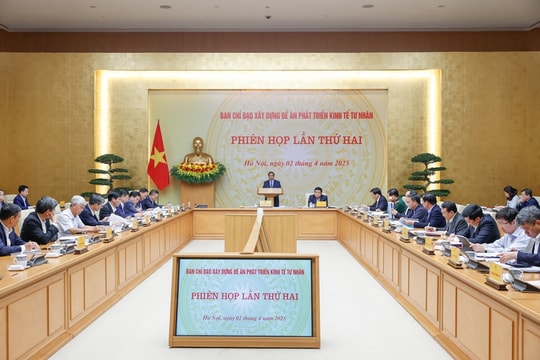The Prime Minister thoroughly grasps and implements the Politburo's Resolution on private economic development.
On the morning of May 18, the Politburo and the Secretariat held a National Conference to disseminate and implement Resolution No. 66, dated April 30, 2025, on innovation in law-making and enforcement to meet the requirements of national development in the new era and Resolution No. 68, dated May 4, 2025, on private economic development.
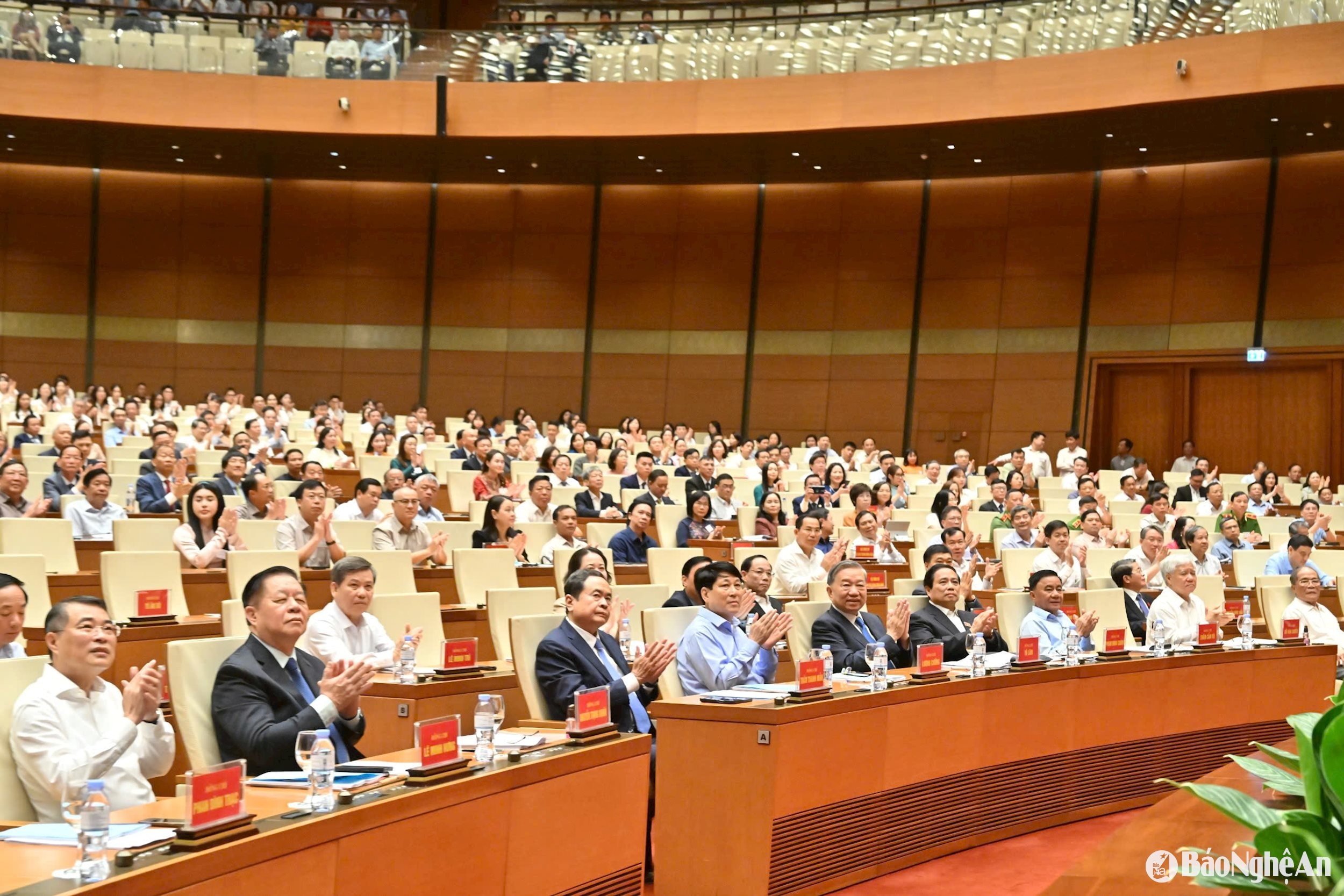
At Dien Hong Hall, National Assembly House, comrades: To Lam - General Secretary; Luong Cuong - Politburo member, President; Pham Minh Chinh - Politburo member, Prime Minister; Tran Thanh Man - Politburo member, Chairman of the National Assembly; Tran Cam Tu - Politburo member, Standing member of the Party Central Committee Secretariat attended and directed the conference.
Attending the conference were Politburo members, former Politburo members, Secretariat members, Party Central Committee members, Central Military Commission members; leaders of central departments, ministries, branches, mass organizations, Central Business Associations, Groups, Corporations, and enterprises.
Attending at the central bridge point of Nghe An province were comrades: Prof. Dr. Nguyen Xuan Thang - Politburo member, Director of Ho Chi Minh National Academy of Politics, Chairman of the Central Theoretical Council; General Luong Tam Quang - Politburo member, Minister of Public Security; Pham Tat Thang - Member of the Party Central Committee, Deputy Head of the Central Propaganda and Mass Mobilization Commission; Nguyen Thanh Nghi - Member of the Party Central Committee, Standing Deputy Secretary of the Ho Chi Minh City Party Committee; and delegates from central agencies and Ho Chi Minh National Academy of Politics.
The leaders of Nghe An province include comrades: Nguyen Duc Trung - Secretary of the Provincial Party Committee; Hoang Nghia Hieu - Standing Deputy Secretary of the Provincial Party Committee, Chairman of the Provincial People's Council; Le Hong Vinh - Deputy Secretary of the Provincial Party Committee, Chairman of the Provincial People's Committee; Vo Thi Minh Sinh - Deputy Secretary of the Provincial Party Committee, Chairman of the Provincial Fatherland Front Committee, Head of the Provincial National Assembly Delegation; together with comrades of the Standing Committee of the Provincial Party Committee, members of the Provincial Party Executive Committee, members of the Provincial Party Committee's Inspection Committee; leaders of departments, branches, the Provincial Fatherland Front, socio-political organizations, provincial-level reporters, Principal and Vice Principal of the Provincial Political School.
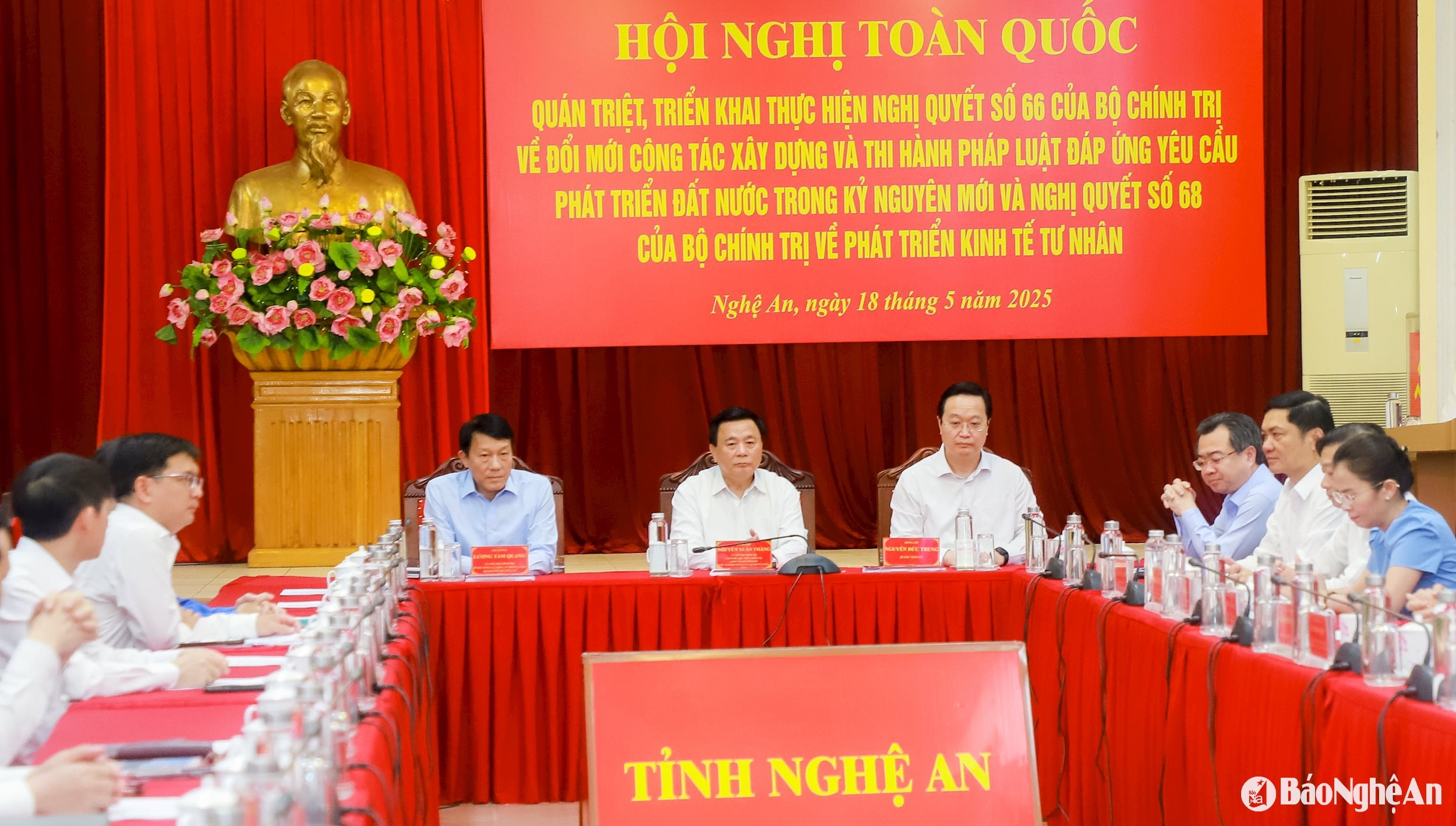
3 fundamental shortcomings in private economic development
At the conference, Comrade Pham Minh Chinh - Politburo member, Prime Minister thoroughly grasped and deployed the topic: "Key and core contents of Resolution 68-NQ/TW, dated May 4, 2025 of the Politburo on private economic development and the Action Plan to implement the resolution".
The Prime Minister reviewed the basic features of private economic development in our country, especially since the renovation until now.
Accordingly, the development process of the private economic sector over the past nearly 40 years can be summarized into 5 stages: Stage 1986 - 1999: Formation and recognition; Stage 2000 - 2005: Prosperity with the Enterprise Law; Stage 2006 - 2015: Integration and expansion; Stage 2016 - 2024: Startups boom and become an important driving force in economic development; Stage from 2025 onwards: Orientation for private economic development to become the most important driving force of a self-reliant and sustainable economy.
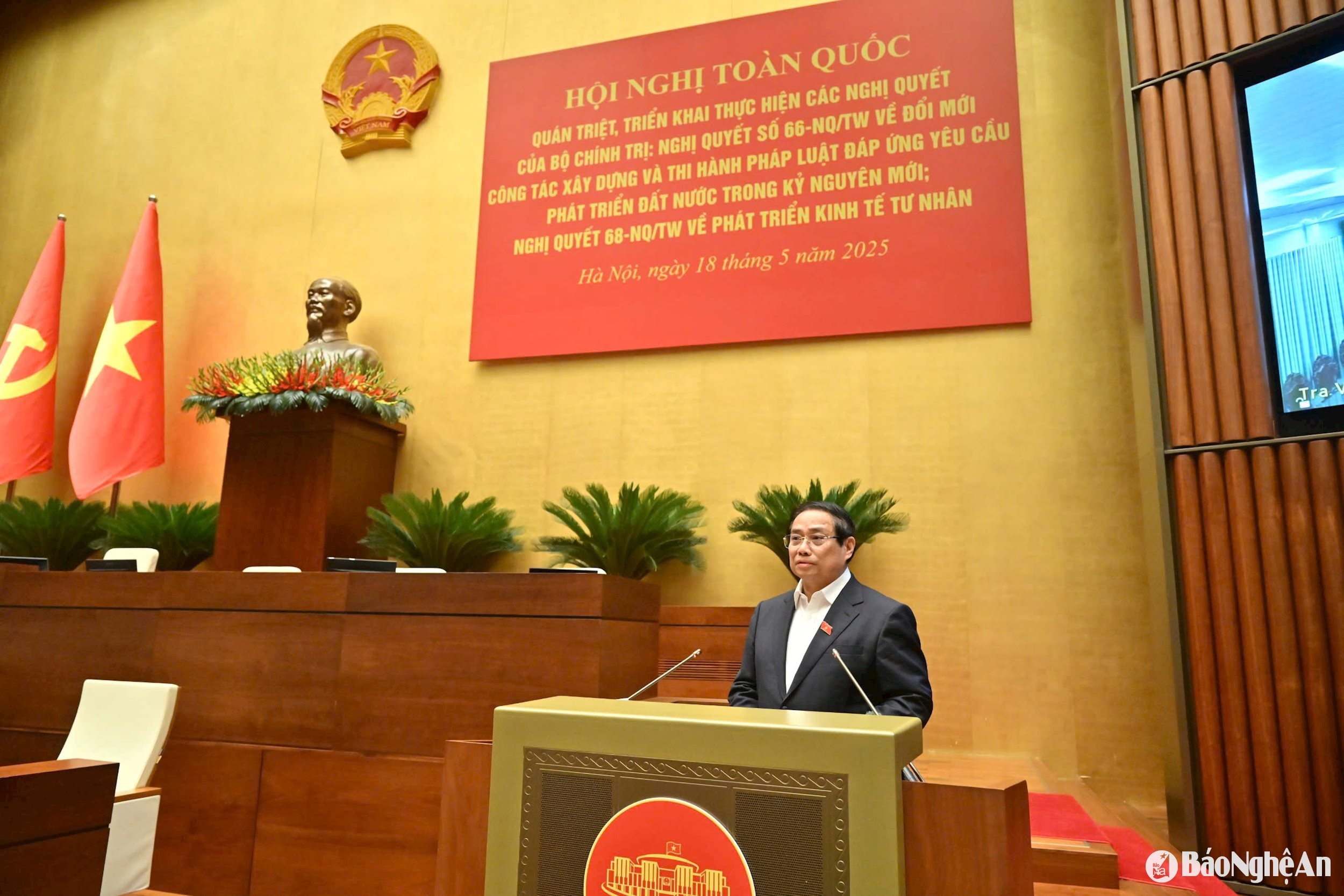
It can be seen that in the process of innovation, integration and development, the private economy has continuously developed, affirming its position as an important driving force of the economy; an effective channel for mobilizing social resources for development investment; making an important contribution to promoting economic growth, increasing state budget revenue; creating jobs, income, improving people's lives, ensuring social security; promoting international integration; making an important contribution to the cause of building, defending the Fatherland and developing the country.
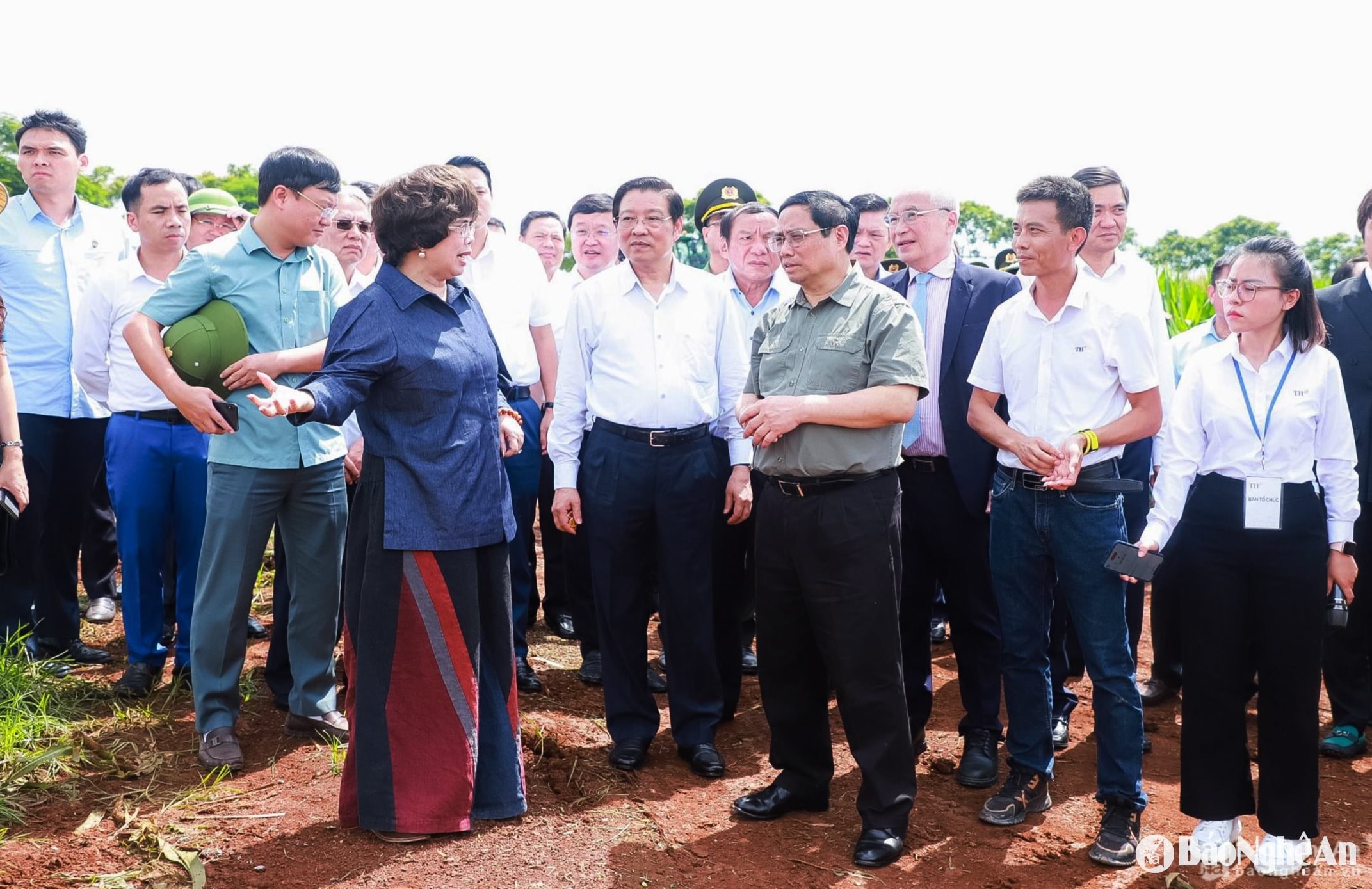
Specifically, the number of established enterprises has increased sharply, from about 5,000 enterprises in 1990 to nearly 1 million enterprises operating in the economy, which is the sector with the largest contribution to the economy, accounting for about 50% of GDP.

From 2016 to present, the growth rate of the private economic sector has reached about 6-8%/year, higher than the average growth rate of the economy; in the period 2017-2024, it employs an average of more than 43.5 million workers, accounting for more than 82% of the total number of employed workers in the economy.
The proportion of private economic investment capital in total social investment capital increased rapidly, from 44% in 2010 to 56% in 2024; contributing more than 30% of total state budget revenue, about 30% of total import-export turnover.
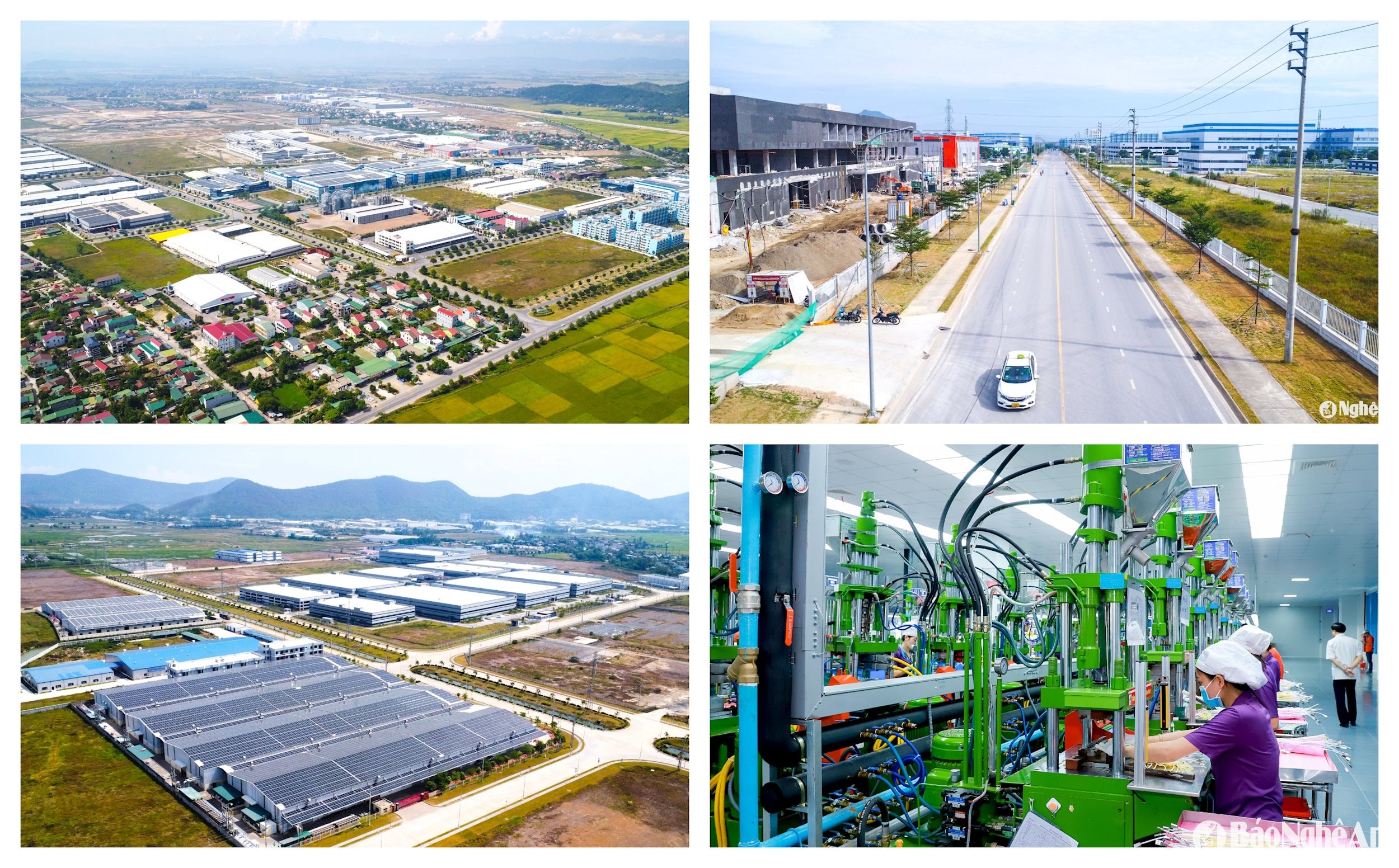
The private sector is a dynamic sector in technological innovation, product and service creation. Start-ups and innovative businesses are increasing rapidly, from 1,500 startups in 2015 to about 4,000 startups in 2024. Many large corporations and businesses are being formed, developing, and reaching regional and international levels.
The group of entrepreneurs is growing stronger and stronger, the entrepreneurial spirit, the spirit of innovation and the desire to rise up are increasingly stronger; especially, even in difficult times, natural disasters, epidemics, businesses and entrepreneurs still strive to maintain production and business activities, demonstrating social responsibility to the community.
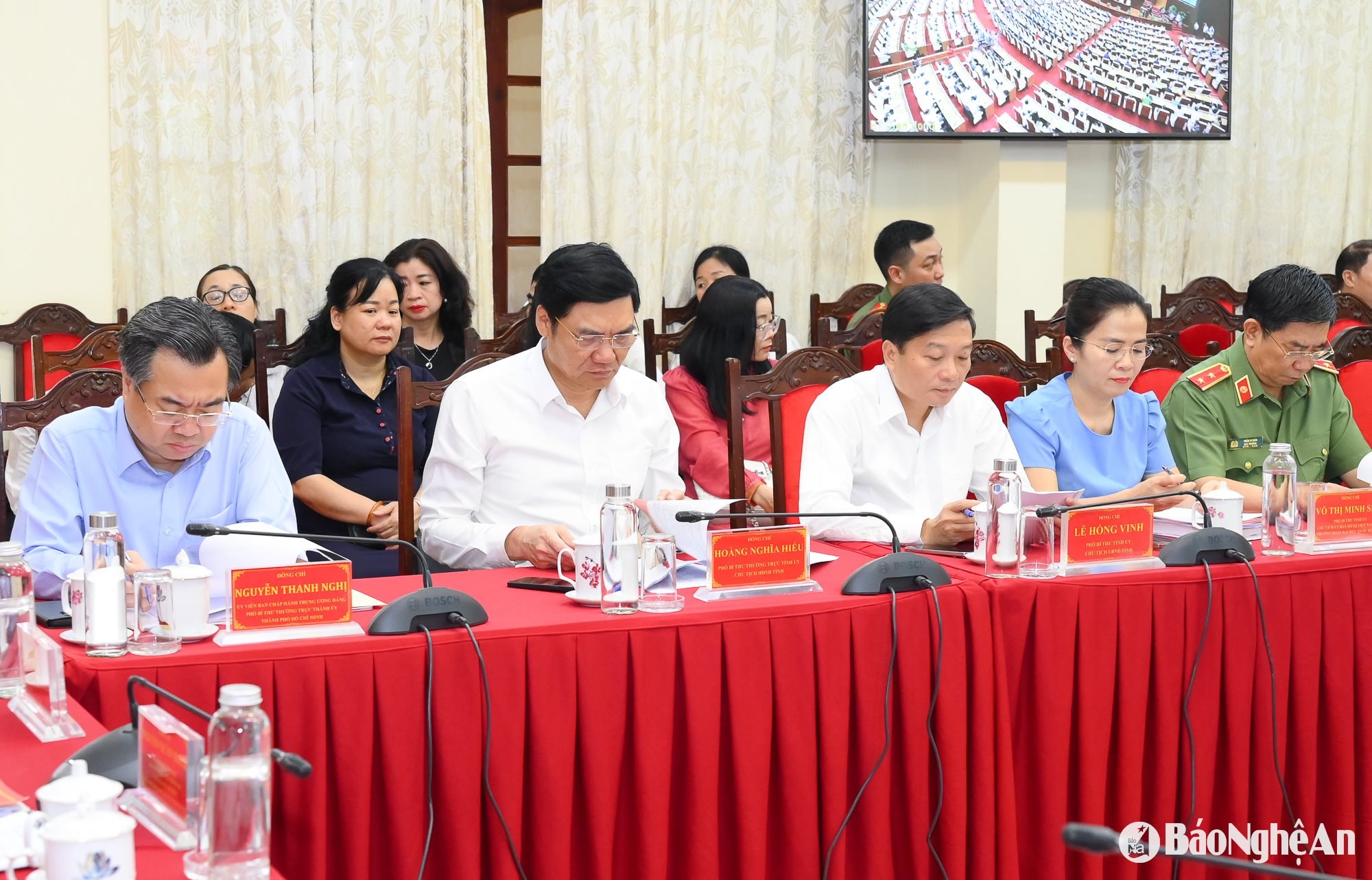
Despite many important contributions, the private economic sector still has shortcomings and limitations, has not fully exploited its potential and internal strength, and has not made a worthy contribution to the national economy; in which: The target of reaching 1.5 million enterprises and contributing 55% of GDP by 2025 has not been achieved; in particular, nearly 98% of private enterprises are small, medium, and micro-sized (nearly 70% micro-sized)...
“Through the practice of leadership, direction and management, we also clearly see the fundamental and essential shortcomings: Awareness of the private economy is still limited, viewpoints are not open; leadership and direction work is still inadequate; organization of implementation of laws, mechanisms and policies on the private economy is not really timely and effective; a part of private enterprises are not really proactive, flexible, self-reliant, self-reliant and striving to improve,” said Prime Minister Pham Minh Chinh.
DThe most important driving force of the national economy
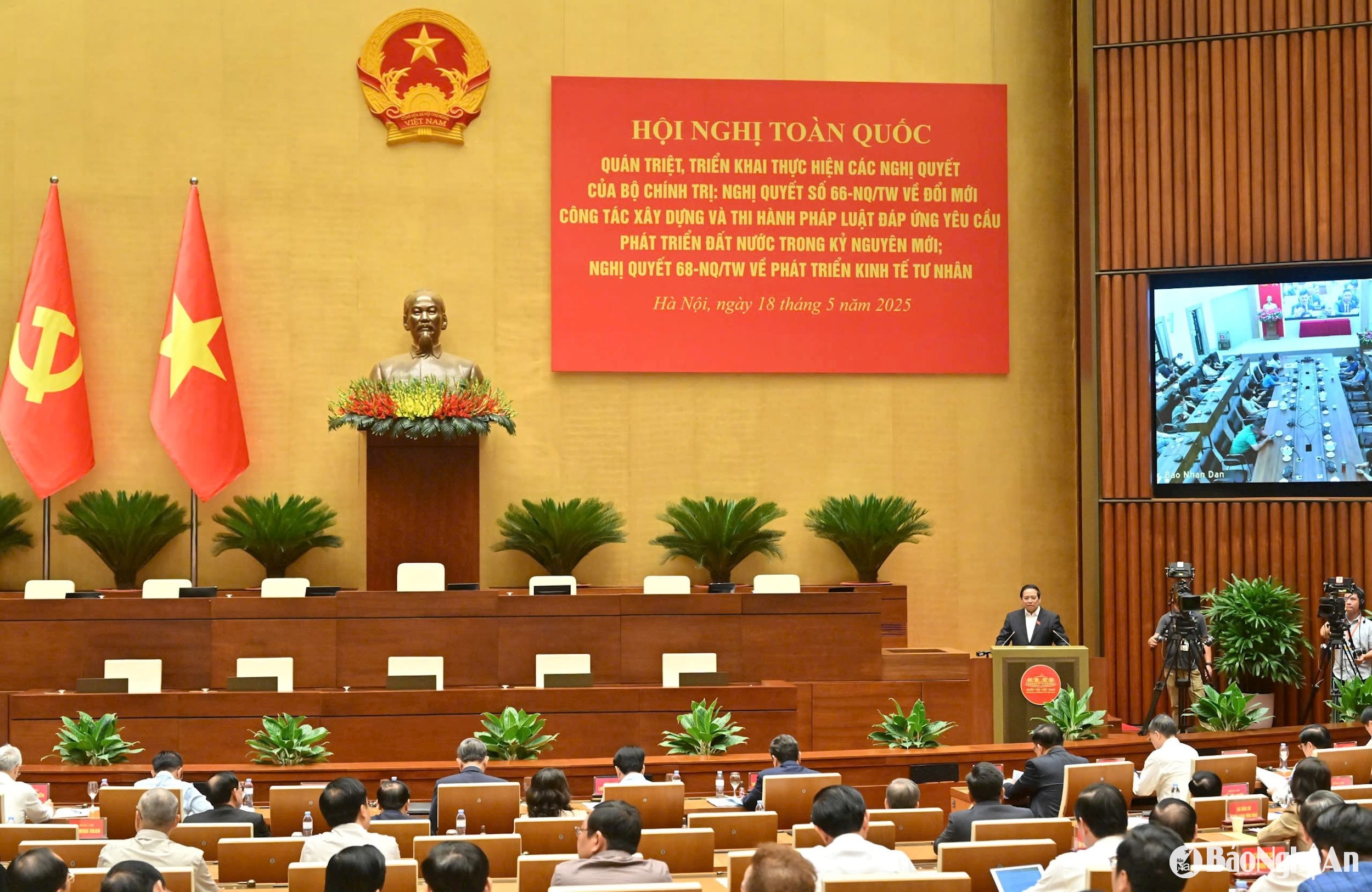
Based on the analysis of 4 objective requirements and 4 subjective requirements, the head of the Government has clearly pointed out the requirements for a breakthrough policy for private economic development. Accordingly, implementing the direction of the Politburo, the Government has promptly established a Steering Committee to develop a Project for private economic development and in a short time submitted to the Politburo for promulgation of Resolution No. 68-NQ/TW.
This is considered a breakthrough in development thinking, becoming a "revolution in thinking and institutions" for the private economy, creating and strengthening trust, promoting the private economy to rise up, break through, and contribute to the country.
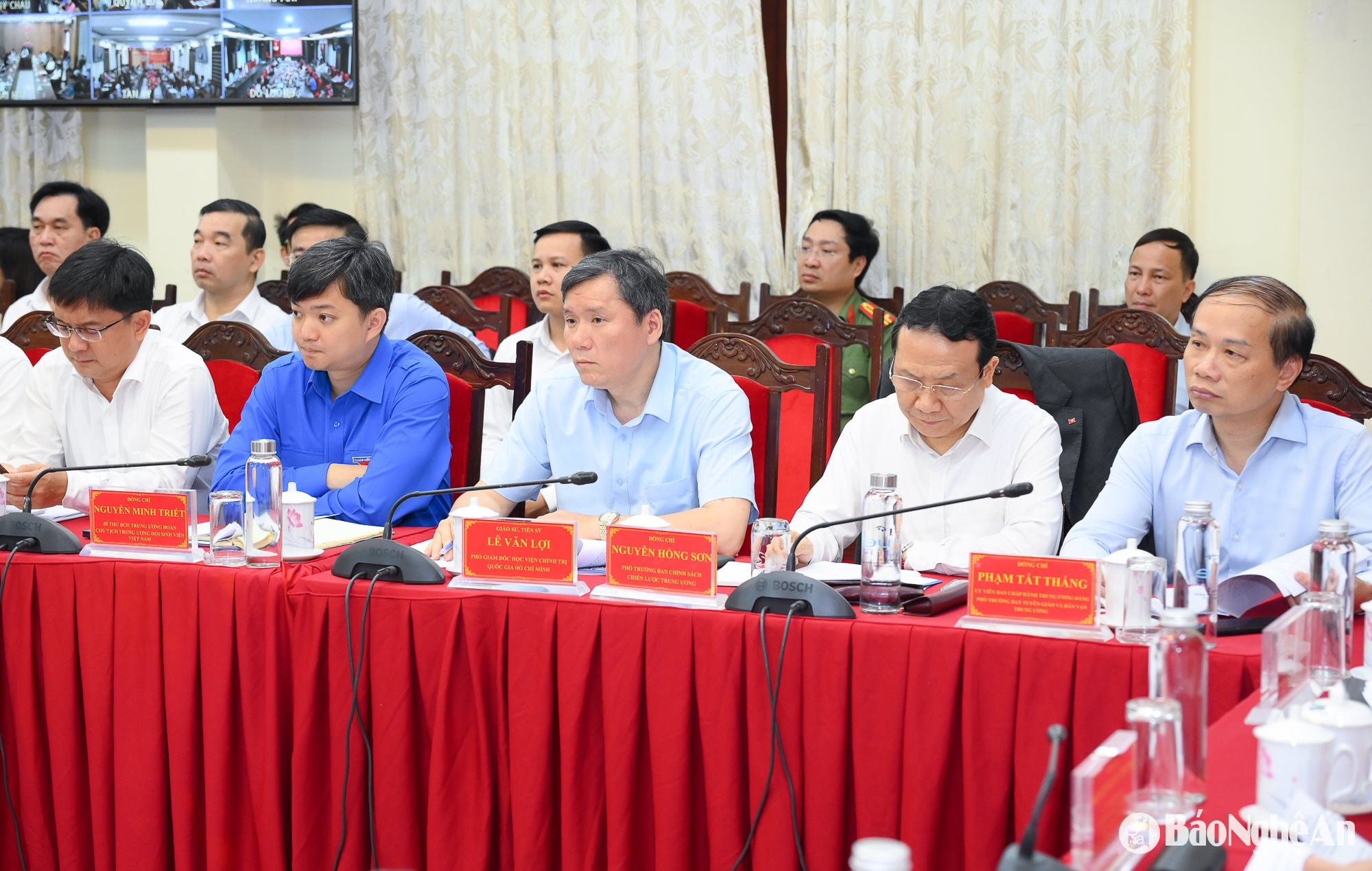
Analyzing 5 breakthrough guiding viewpoints on private economic development in Resolution 68/NQ-TW, the Prime Minister sent out a message launching a movement to compete for the whole people to get rich to build and develop the country.
By 2030, the private economy will be the most important driving force of the national economy; a pioneer in science and technology development, innovation and digital transformation, contributing to the successful implementation of the goals of Resolution No. 57-NQ/TW of the Politburo.
There are 2 million enterprises operating in the economy, 20 enterprises operating/1,000 people; there are at least 20 large enterprises participating in the global value chain.
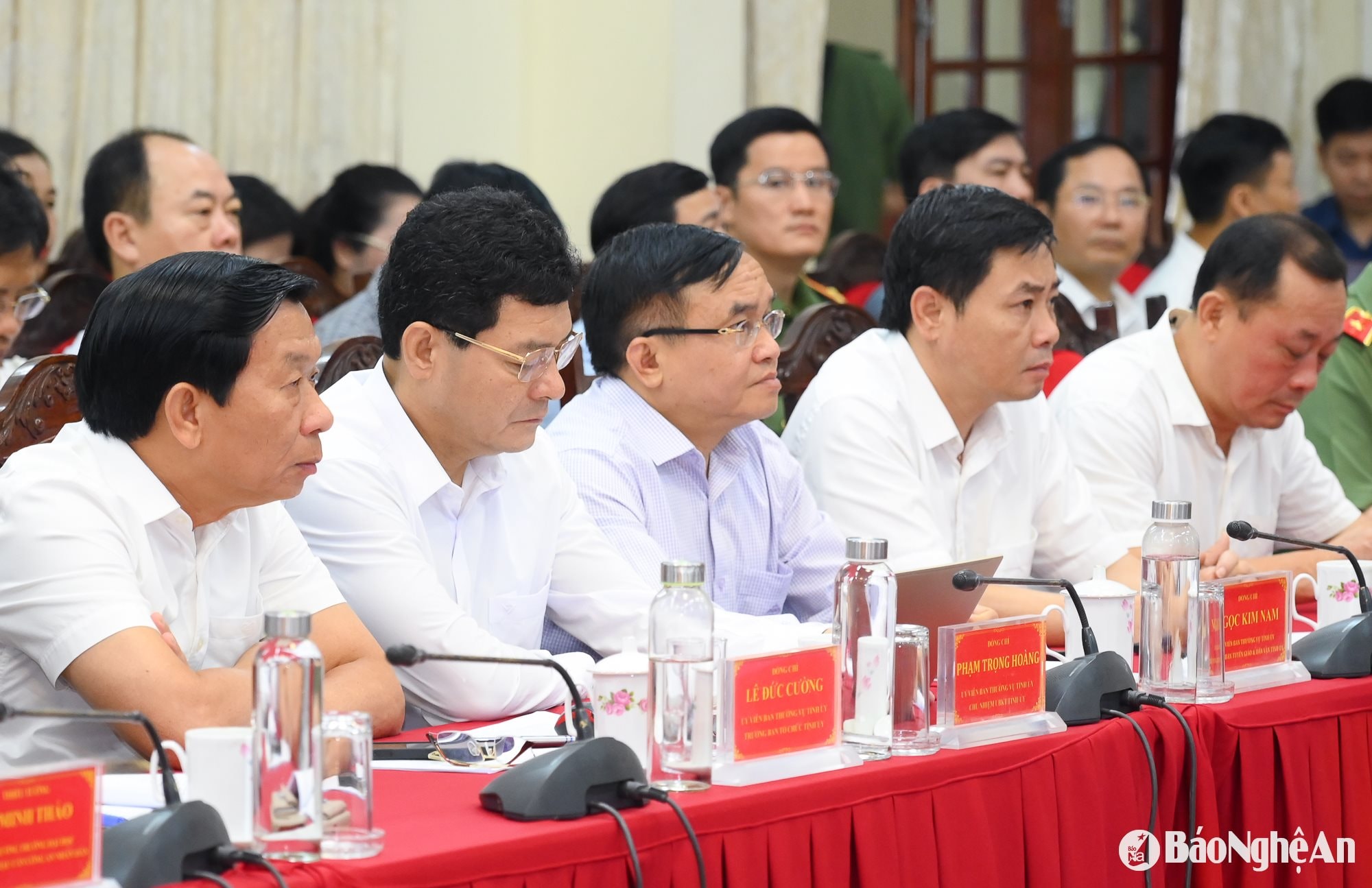
The average growth rate is about 10-12%/year, higher than the growth rate of the economy; contributing about 55-58% of GDP, 35-40% of total state budget revenue; creating jobs for about 84-85% of the total workforce; labor productivity increases on average about 8.5-9.5%/year.
Technological capacity, innovation, and digital transformation are among the top 3 countries in ASEAN and the top 5 countries in Asia.
Vision to 2045, Vietnam's private economy will develop rapidly, strongly, sustainably, proactively participate in the global production and supply chain; have high competitiveness in the region and internationally; strive to have at least 3 million enterprises operating in the economy by 2045; contribute about over 60% of GDP.
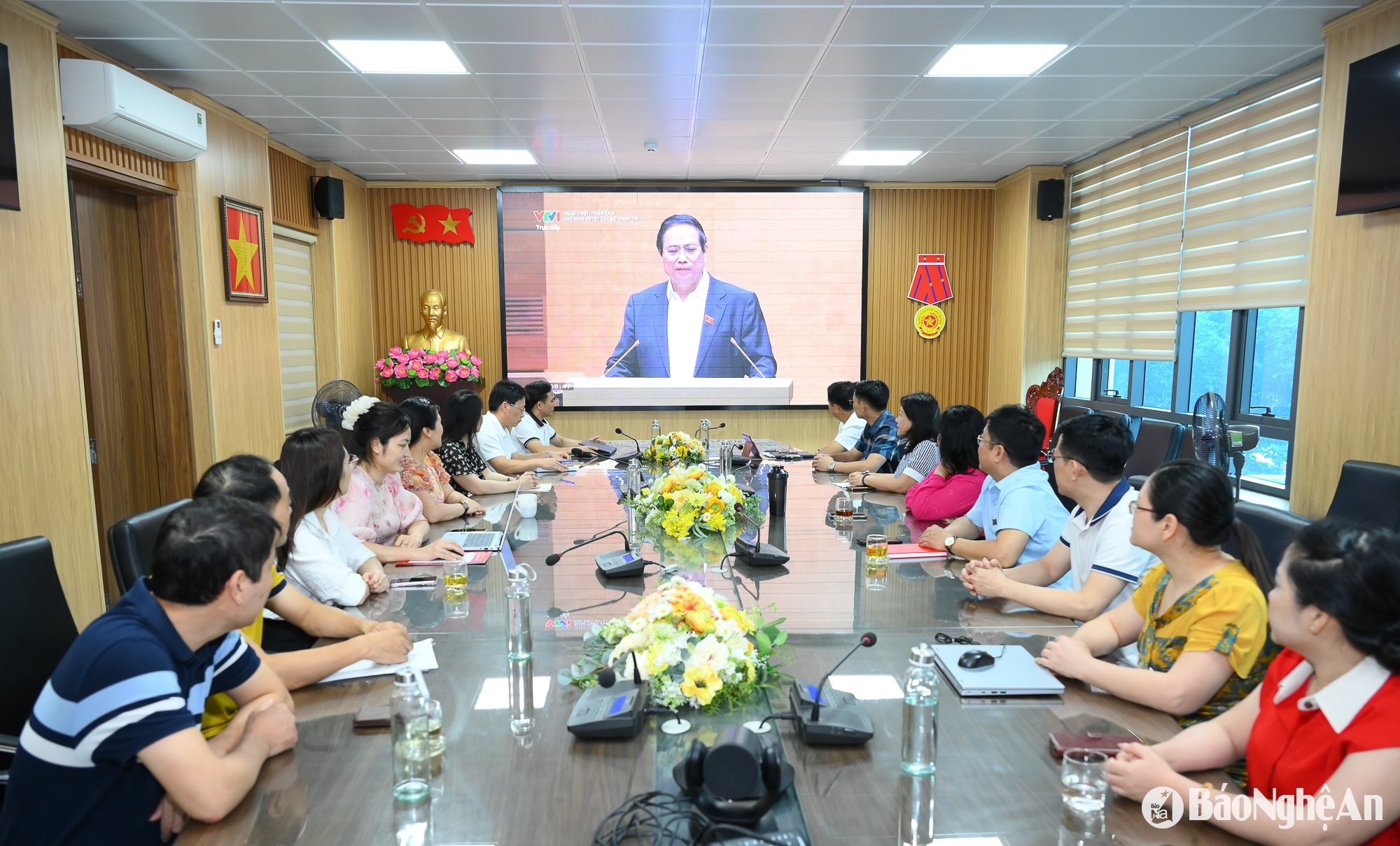
The Resolution sets out 8 groups of tasks and solutions demonstrating the spirit of innovation, breakthroughs, and strong reforms, ensuring adherence to 3 strategic breakthroughs in institutions, human resources, infrastructure, and in the overall 4 important Resolutions of the Politburo, including: Resolution 57-NQ/TW on breakthroughs in science and technology development, innovation and digital transformation; Resolution 59-NQ/TW on international integration in the new situation; Resolution 66-NQ/TW on innovation in law-making and enforcement; Resolution 68-NQ/TW on private economic development.
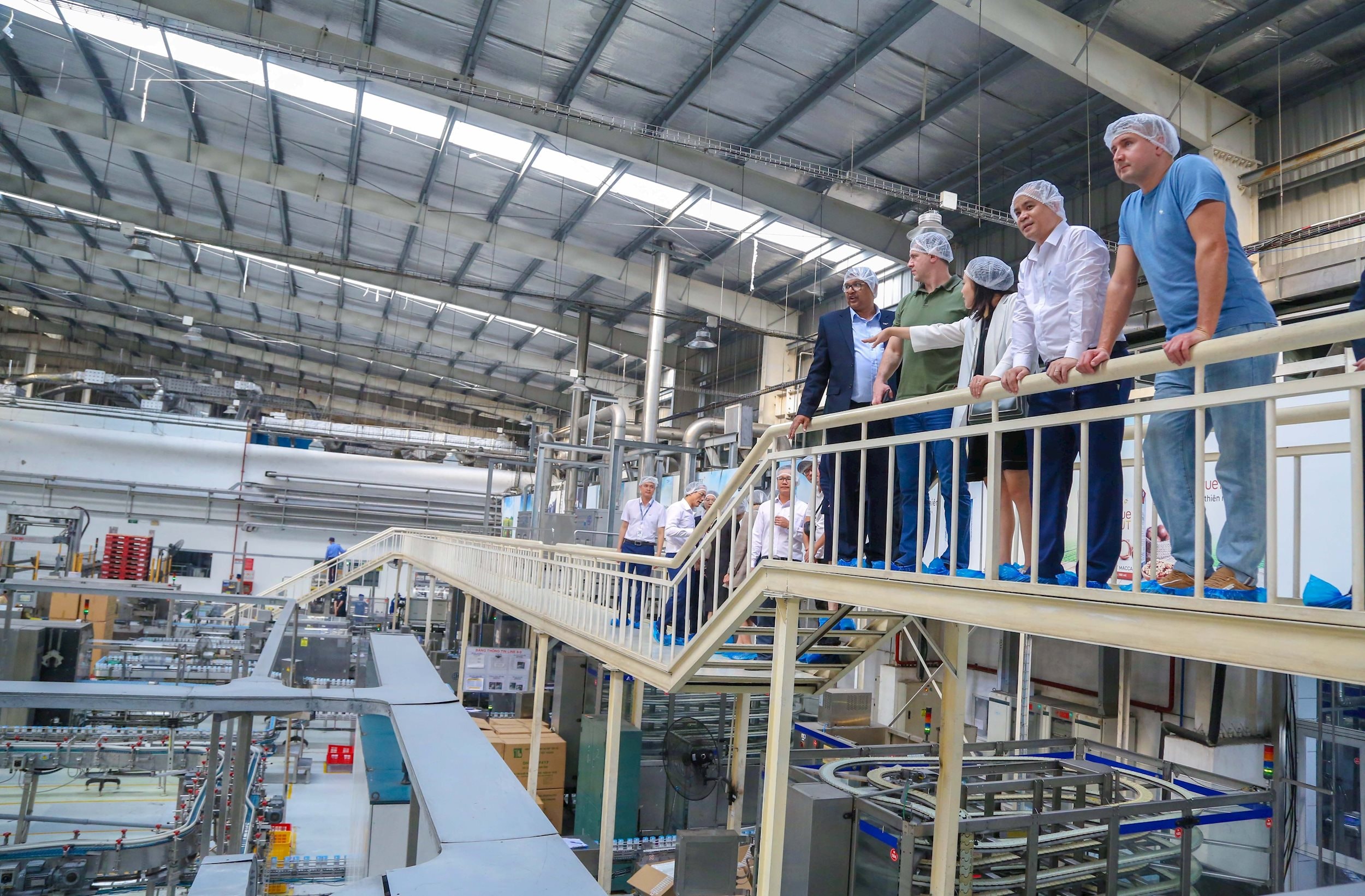
The core content of the 8 groups of tasks and solutions is to solve the most important and urgent issues for private economic development today. These are: Innovation in thinking, awareness and action; reform and improve institutional quality; increase access to resources; promote science and technology, innovation, digital transformation; strengthen business connectivity; develop large private enterprises; support small, micro and household private enterprises; promote the role of entrepreneurs.
Regarding the Government's action plan, the Prime Minister said that it has been concretized into 117 specific tasks to be implemented with the motto of 6 clear points: "clear people, clear work, clear time, clear responsibility, clear products, clear authority".

